Inua Jamii is a flagship cash transfer program implemented by the Kenyan government to uplift the lives of vulnerable members of society through regular and reliable cash transfers. The program targets four categories of beneficiaries, including orphans and vulnerable children, older persons, persons with severe disabilities, and those under the Hunger Safety Net Programme. The main objective of the program is to provide a safety net for the poor and vulnerable in society and improve their livelihoods.
To qualify for the Inua Jamii cash transfer program, beneficiaries must meet certain eligibility criteria. For instance, for the Cash Transfer for Orphans and Vulnerable Children (CT-OVC) program, an extremely poor household with one or more orphans and vulnerable children as a permanent member is eligible.
For the Older Persons Cash Transfer (OPCT) program, a household with a member aged 65 years or older and living in extreme poverty is eligible. The self-registration process is simple and straightforward, and beneficiaries can register themselves through various channels, including mobile phone, online, and at Huduma Centres.
The Inua Jamii cash transfer program has had a significant impact on the lives of beneficiaries, with many reporting improved access to basic needs such as food, healthcare, and education. However, the program faces several challenges, including inadequate funding, delays in payments, and fraud. The government has implemented several measures to address these challenges, including increased funding, digitization of payment systems, and the establishment of a fraud prevention unit.
Key Takeaways
- Inua Jamii is a cash transfer program implemented by the Kenyan government to uplift the lives of vulnerable members of society through regular and reliable cash transfers.
- To qualify for the program, beneficiaries must meet certain eligibility criteria and can register themselves through various channels.
- The program has had a significant impact on beneficiaries’ lives, but faces challenges such as inadequate funding, delays in payments, and fraud, which the government is addressing through various measures.
Inua Jamii Cash Transfer
Overview
Inua Jamii is a flagship National Safety Net Program (NSNP) by the Government of Kenya. The program provides cash transfers to vulnerable groups in the country, including older persons, orphans and vulnerable children, persons with severe disabilities, and those in extreme poverty through the Hunger Safety Net Programme (HSNP). The program aims to reduce poverty, improve the living standards of vulnerable groups, and promote social inclusion.
The cash transfer program is managed by the Directorate of Social Assistance, which is under the Ministry of Labour and Social Protection. The program is funded by the Government of Kenya and development partners, including the World Bank and the UK’s Department for International Development (DFID).
Beneficiaries
Inua Jamii cash transfer program targets vulnerable groups in Kenya. The beneficiaries of the program include:
- Older Persons Cash Transfer (OPCT) – This program targets individuals aged 65 years and above who are not receiving any pension or social assistance from any other source. The program provides a monthly cash transfer of Kshs 2,000 to eligible beneficiaries.
- Cash Transfer for Orphans and Vulnerable Children (CT-OVC) – This program targets households with orphans and vulnerable children. The program provides a monthly cash transfer of Kshs 2,000 to eligible households.
- Persons with Severe Disabilities Cash Transfer (PWSD-CT) – This program targets persons with severe disabilities who are not receiving any pension or social assistance from any other source. The program provides a monthly cash transfer of Kshs 2,000 to eligible beneficiaries.
- Hunger Safety Net Programme (HSNP) – This program targets households in extreme poverty in the arid and semi-arid regions of Kenya. The program provides a monthly cash transfer of Kshs 2,700 to eligible households.
To be eligible for the Inua Jamii cash transfer program, beneficiaries must meet certain criteria, including being a Kenyan citizen, residing in the country, and meeting the specific eligibility criteria for each program. Beneficiaries can apply for the program through self-registration on the Inua Jamii portal. The Directorate of Social Assistance approves or rejects the requests for access to the program.
In conclusion, the Inua Jamii cash transfer program is a crucial safety net intervention by the Government of Kenya to address the plight of vulnerable groups in the country. The program provides monthly cash transfers to eligible beneficiaries, including older persons, orphans and vulnerable children, persons with severe disabilities, and those in extreme poverty. The program aims to reduce poverty, improve the living standards of vulnerable groups, and promote social inclusion.
Qualification Criteria
To qualify for the Inua Jamii cash transfer program, an individual must meet certain eligibility criteria. The program targets vulnerable groups, including orphans, vulnerable children, older persons, and persons with severe disabilities. Here are the qualification criteria for the program:
Cash Transfer for Orphans and Vulnerable Children (CT-OVC)
CT-OVC is for extremely poor households with one or more orphans and vulnerable children (OVCs) as permanent members. The program also targets households with caregivers who are chronically ill and/or unable to perform their duties. To qualify for CT-OVC, a household must meet the following criteria:
- Be extremely poor, with a monthly income of less than Ksh. 2,000 per adult equivalent
- Have at least one OVC as a permanent member
- Have a caregiver who is chronically ill and/or unable to perform their duties
Cash Transfer for Persons with Severe Disabilities (CT-PWD)
CT-PWD targets persons with severe disabilities who are unable to perform their daily activities without assistance. To qualify for CT-PWD, an individual must meet the following criteria:
- Have a severe disability that affects their ability to perform daily activities
- Be unable to perform daily activities without assistance from another person
- Be a resident of Kenya
- Be aged between 18 and 64 years
- Have a monthly income of less than Ksh. 2,000 per adult equivalent
Cash Transfer for Older Persons (CT-OP)
CT-OP targets older persons aged 70 years and above who are vulnerable and unable to support themselves. To qualify for CT-OP, an individual must meet the following criteria:
- Be aged 70 years and above
- Be a resident of Kenya
- Have a monthly income of less than Ksh. 2,000 per adult equivalent
Cash Transfer for Persons with Severe Mental Disabilities (CT-SMD)
CT-SMD targets persons with severe mental disabilities who are unable to perform their daily activities without assistance. To qualify for CT-SMD, an individual must meet the following criteria:
- Have a severe mental disability that affects their ability to perform daily activities
- Be unable to perform daily activities without assistance from another person
- Be a resident of Kenya
- Be aged between 18 and 64 years
- Have a monthly income of less than Ksh. 2,000 per adult equivalent
Overall, the Inua Jamii cash transfer program is designed to provide financial assistance to vulnerable members of society. By meeting the eligibility criteria, individuals can benefit from regular cash transfers that can help them meet their basic needs.
Self-Registration Process
To register for the Inua Jamii cash transfer program, individuals must follow a simple self-registration process. The process involves community engagement, validation, enrollment, and opening of bank accounts.
Firstly, community engagement is done to identify and sensitize potential beneficiaries. The community is informed about the program’s objectives, eligibility criteria, and registration process. Afterward, the interested individuals are required to provide their personal information such as name, date of birth, and identification number.
Secondly, the Directorate of Social Assistance validates the provided information to ensure that the applicant meets the eligibility criteria. The eligibility criteria vary depending on the type of cash transfer program. For instance, the Cash Transfer for Orphans and Vulnerable Children (CT-OVC) program targets orphans and vulnerable children who are below eighteen years.
Thirdly, the validated applicants are enrolled in the program. The Directorate of Social Assistance assigns a unique identification number to each beneficiary. The identification number is used to track payments and monitor the beneficiaries’ progress.
Lastly, the beneficiaries are required to open bank accounts to receive the cash transfers. The Directorate of Social Assistance works with various financial institutions to ensure that beneficiaries can access their payments conveniently.
In conclusion, the self-registration process for the Inua Jamii cash transfer program is straightforward and accessible to potential beneficiaries. By prioritizing accessibility, the program aims to uplift the lives of vulnerable groups in Kenya.
Payment Methods
Inua Jamii cash transfer program provides different payment methods to beneficiaries to receive their bi-monthly stipend. The two main payment methods are bank payments and mobile money.
Bank Payments
Beneficiaries who prefer bank payments can receive their stipend through Cooperative Bank, Equity Bank, KCB Bank, and Post Bank. The funds are deposited directly into the beneficiaries’ bank accounts, and they can withdraw the money using their bank’s ATM or over the counter services.
To receive bank payments, beneficiaries must provide their bank account details during registration or update their details at the Social and Development Services offices. It is important to ensure that the bank account details provided are accurate to avoid any delays in receiving payments.
Mobile Money
Inua Jamii beneficiaries can also receive their stipend through mobile money services such as M-Pesa, Airtel Money, and T-Kash. Mobile money payments are convenient for beneficiaries who do not have bank accounts or live in areas without access to banking services.
To receive mobile money payments, beneficiaries must provide their mobile phone numbers during registration or update their details at the Social and Development Services offices. Once the payment is made, beneficiaries receive a notification on their mobile phone, and they can withdraw the money from any mobile money agent.
It is important to note that beneficiaries can only choose one payment method, either bank payments or mobile money. They cannot receive payments through both methods. Beneficiaries are advised to choose the payment method that is most convenient for them and ensure that their payment details are accurate and up to date to avoid any delays in receiving their stipend.
Impact of Inua Jamii Program
Inua Jamii Cash Transfer Program has had a significant impact on the lives of the beneficiaries. The program has been instrumental in reducing poverty levels, improving the livelihoods of vulnerable groups, and promoting social inclusion.
Reduction in Poverty Levels
Inua Jamii Cash Transfer Program has helped to reduce poverty levels among the beneficiaries. The cash transfer has enabled the recipients to meet their basic needs, such as food, clothing, and shelter. This has improved their quality of life and reduced the incidence of extreme poverty.
Improved Livelihoods of Vulnerable Groups
Inua Jamii Cash Transfer Program has improved the livelihoods of vulnerable groups, including older persons, orphans and vulnerable children, and persons with severe disabilities. The cash transfer has enabled them to access basic services, such as healthcare and education, which were previously out of reach.
Promotion of Social Inclusion
Inua Jamii Cash Transfer Program has promoted social inclusion by ensuring that vulnerable groups are not left behind. The program has enabled the beneficiaries to participate in social and economic activities, which were previously impossible due to their financial constraints.
Self-Registration and Payments
Inua Jamii Cash Transfer Program has made it easier for beneficiaries to register themselves and receive payments. The program has introduced a self-registration system, which enables beneficiaries to register themselves without having to go through intermediaries. The payments are also made directly to the beneficiaries’ bank accounts or mobile wallets, which eliminates the need for intermediaries and reduces the risk of fraud.
Overall, Inua Jamii Cash Transfer Program has had a positive impact on the lives of the beneficiaries. The program has helped to reduce poverty levels, improve the livelihoods of vulnerable groups, promote social inclusion, and make it easier for beneficiaries to register themselves and receive payments.
Challenges and Solutions
Despite the benefits of the Inua Jamii cash transfer program, there are some challenges that need to be addressed. Here are some of the challenges and the solutions proposed to address them:
Challenge: Limited Coverage
One of the main challenges facing the Inua Jamii cash transfer program is limited coverage. The program only covers the elderly, orphans, and vulnerable children, leaving out other groups such as the disabled and the unemployed. This means that some of the most vulnerable people in the society are not benefiting from the program.
Solution: Expansion of Coverage
To address this challenge, the government has proposed to expand the coverage of the Inua Jamii program to include other vulnerable groups such as the disabled and the unemployed. This will ensure that more people benefit from the program.
Challenge: Inadequate Funding
Another challenge facing the Inua Jamii program is inadequate funding. The program requires a lot of resources to run, including funds for cash transfers, administrative costs, and monitoring and evaluation. However, the government’s budget for the program is limited, which means that it cannot reach as many beneficiaries as it should.
Solution: Increased Funding
To address this challenge, the government needs to increase funding for the Inua Jamii program. This can be achieved by allocating more funds to the program in the national budget or by seeking funding from development partners.
Challenge: Fraud and Corruption
Fraud and corruption are also challenges facing the Inua Jamii program. Some unscrupulous individuals have been known to register fake beneficiaries and siphon off funds meant for the program. This has led to some genuine beneficiaries being left out of the program.
Solution: Strengthening of Monitoring and Evaluation
To address this challenge, the government needs to strengthen the monitoring and evaluation of the Inua Jamii program. This can be achieved by using biometric registration and verification systems to ensure that only genuine beneficiaries are registered. Additionally, regular audits should be conducted to identify and address cases of fraud and corruption.
Overall, while the Inua Jamii cash transfer program has had a positive impact on the lives of many vulnerable Kenyans, there are still some challenges that need to be addressed to make the program more effective and inclusive.
Frequently Asked Questions
What are the eligibility requirements for Inua Jamii cash transfer?
To qualify for Inua Jamii cash transfer, an individual must be a Kenyan citizen and meet one of the following criteria:
- Be a person with severe disabilities
- Be an older person aged 65 years and above
- Be a household with one or more orphans and vulnerable children (OVCs) as a permanent member
- Be a household with a caregiver who is chronically ill and/or unable to perform his/her ordinary duties
What is the process for self-registration for Inua Jamii cash transfer?
Individuals who meet the eligibility requirements for Inua Jamii cash transfer can self-register by visiting their nearest Huduma Centre or Social Assistance Unit (SAU) office. They will need to provide their original identification documents, such as a national ID card, and proof of their eligibility, such as a medical report for persons with severe disabilities.
When will the next payment for Inua Jamii be made?
The payment dates for Inua Jamii cash transfer vary depending on the category of beneficiary. The payment dates are usually communicated to beneficiaries through SMS or by visiting the nearest SAU office. Beneficiaries are encouraged to keep their contact information up to date to ensure they receive timely payment notifications.
Are there any news updates on Inua Jamii for 2023?
In 2023, Inua Jamii is set to launch its new registration phase from 1st September to 15th September 2023, covering all sub-counties in Kenya. This initiative aims to provide financial assistance to vulnerable members of society.
Can I apply for Inua Jamii promotion money?
Inua Jamii promotion money is a one-time payment made to beneficiaries who have been on the program for at least six months. The promotion money is not a separate application process, but rather an automatic payment made to eligible beneficiaries.
What are the SOFT loans available through Inua Jamii?
Inua Jamii also offers SOFT loans to beneficiaries who have been on the program for at least six months. These loans are designed to provide beneficiaries with capital to start or expand small businesses. The loans are interest-free and are repaid over a period of six months. Beneficiaries must have a viable business plan and meet the eligibility criteria to qualify for the SOFT loan.
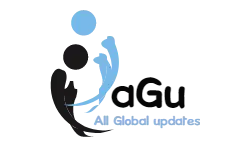
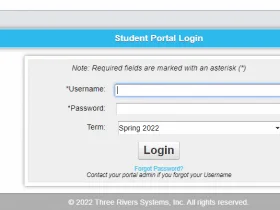
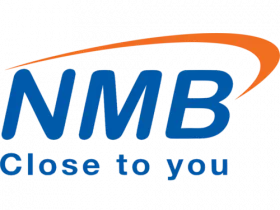
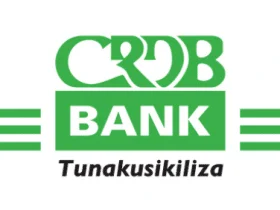
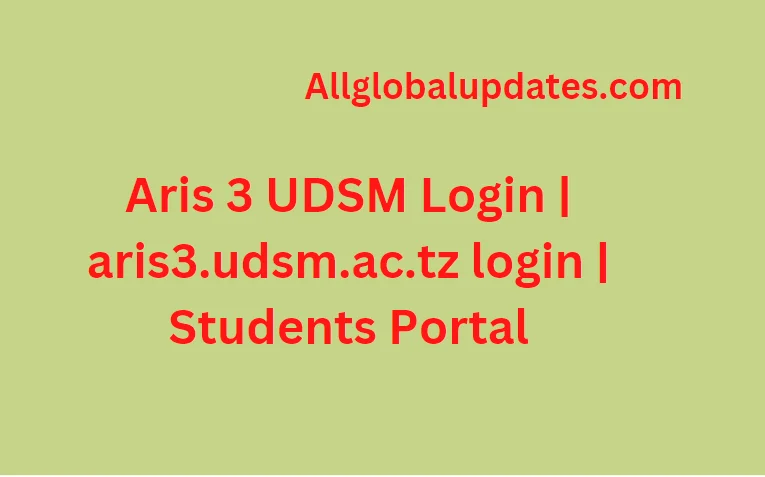
Leave a Reply